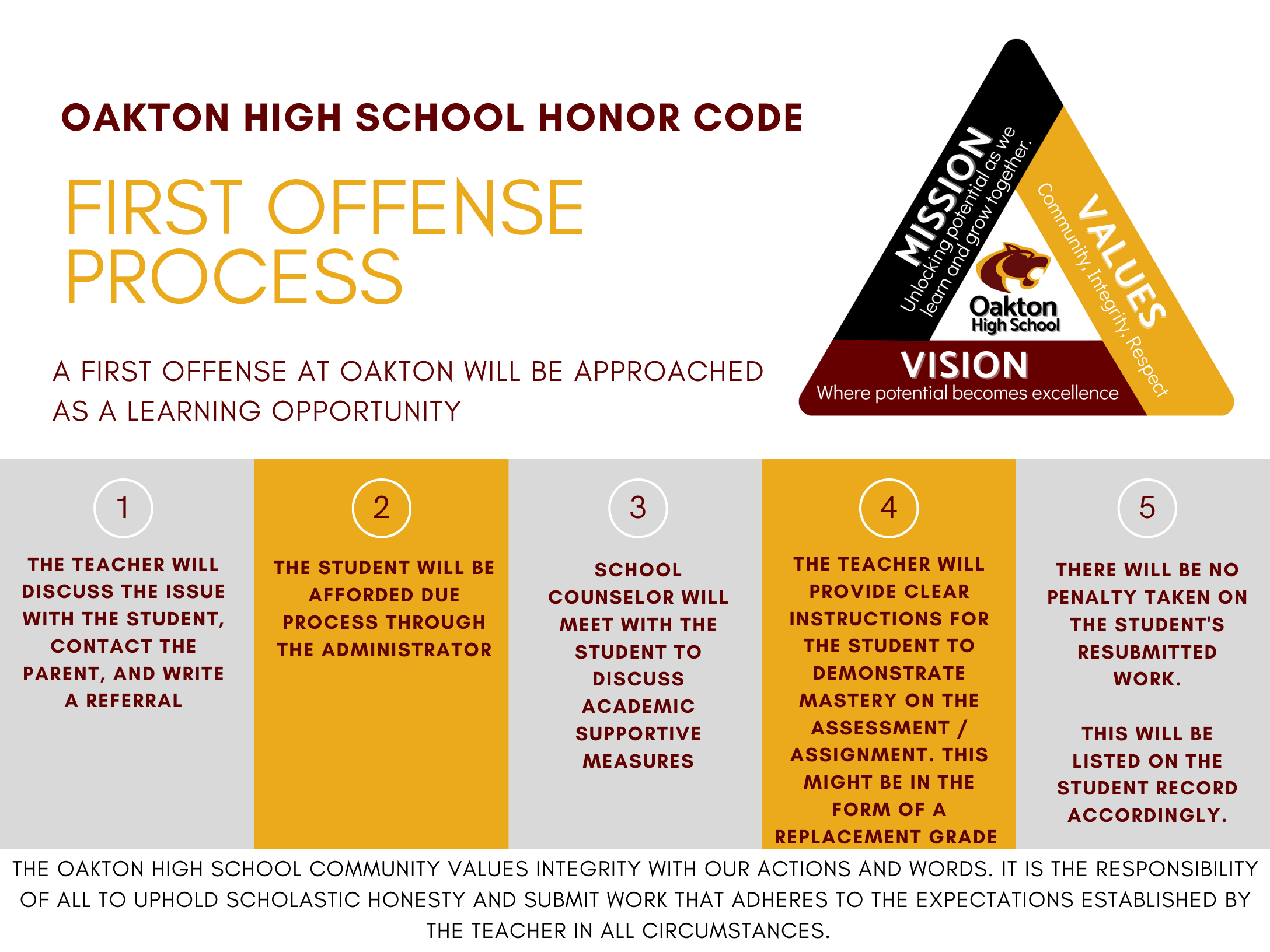Oakton's Honor Code
The Oakton High School community values integrity with our actions and words. It is the responsibility of all to uphold scholastic honesty and submit work that adheres to the expectations established by the teacher in all circumstances.
Scholastic dishonesty or academic dishonesty includes, but is not limited to: cheating, plagiarism, falsifying academic records, and any act designed to give unfair advantage to the student through any means including the use of generative artificial intelligence (GenAI).
Stakeholder Responsibility
Students have the responsibility to:
- Avoid situations that might contribute to cheating or plagiarizing.
- Avoid unauthorized assistance. Clarify with teachers when it is acceptable to use AI and how to cite and/or explain AI use.
- Use sources in the prescribed manner.
- Document borrowed materials by citing sources.
- Avoid plagiarism by:
- Using quotation marks for statements taken from others.
- Acknowledging information and ideas borrowed from any source.
- Consulting faculty members about a questionable situation.
- Avoid “cutting” and “pasting” from other sources without proper attribution or citation. Teachers may require work to be completed in specific platforms (e.g., Google Docs).
Parents have the responsibility to:
- Support their child’s efforts to be an honest part of the OHS community.
- Have knowledge of the Honor Code.
- Have knowledge of consequences due to Honor Code infractions.
- Provide a positive role model.
- Support faculty and administration in enforcing the Honor Code.
Teachers have the responsibility to:
- Teach or review the correct use of sources and citations when assigning work.
- Structure conditions during testing to alleviate the possibility of cheating.
- Specify the types of collaboration that are discouraged and those that are encouraged.
- Specify when it is acceptable for students to use Artificial Intelligence (AI) on any part of an assignment and what the expectations are for students to cite and/or explain their use of AI.
Counselors have the responsibility to:
- Review and explain Honor Code when appropriate.
- Work together with students, teachers, administrators, and parents in supporting the Honor Code.
- Encourage course selection that will allow the student to work independently to their capability.
Administrators have the responsibility to:
- Make sure that all faculty, students, and parents have knowledge of the Oakton Honor Code.
- Create a school-wide environment which encourages integrity and scholastic honesty.
- Maintain accurate records of violations
Honor Code Violations
Students who violate the Honor Code must accept responsibility for their actions and the accompanying consequences.
Below you will find graphics that detail our Honor Code process. Below each graphic you will also find a dropdown arrow with the process in text form.



